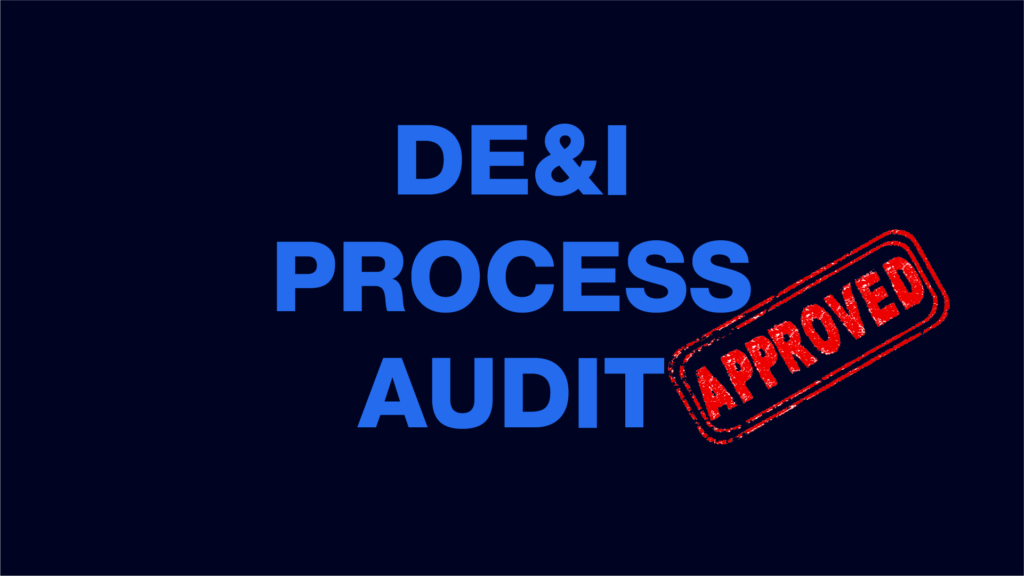Leadership Assessment – Actions Speak Louder Than Words
In Brief
- There’s a lot of talk about discarding CVs and hiring people for what they can do rather than what they’ve done. There are a number of issues with that.
- There’s a big gap between talking about what someone intends to do and what they end up doing. This is most evident in democratic leadership campaigns.
- Employers need to de-risk the hiring process as best they can, and in order to do so, past evidence of progress and results cannot be ignored.
- What someone has previously done is what got them to where they are today. We need a structured process to help us understand the likelihood of their trajectory continuing.
“Don’t hire someone for what they’ve done. Hire them for what they can do” seems to be a popular statement on LinkedIn these days. I’m not sure how much thought has gone into such statements, as, in reality, it just doesn’t work like that. Let’s consider a scenario where a company was looking to hire a new leader. The company is interviewing the candidate.
“Don’t worry about your CV. We’re only interested in what you can do. What’s your name, by the way, as we no longer get to know that as we anonymize everything for fairness.”
“My name is Bernie. Well, that’s a refreshing way to look at recruitment. I believe I know how to run this company. Feel free to ask me anything?”
“No, that won’t be necessary. We’re not interested in evidence of what you have done. We’re really focused on what you can do. So how would you run this company.”
“I’d spend the first three months listening to employees at all levels, and I’d also speak to customers and suppliers. I’d then formulate a strategy to increase our market share by 20% and aim to create the most inclusive company in our industry with a zero carbon footprint by 2023.”
“That’s literally the best answer we’ve ever heard. Group CEO, here you come. Sorry, what was your last name again? It wasn’t on the CV.”
“My last name? Madoff. Bernie Madoff.”
Some could make a valid argument that graduates are hired for what they can do rather than what they have done, as they haven’t done the job yet, but even that statement isn’t true. The mere fact that they graduated is something that they’ve done that proves they have the capacity to learn at a certain level. That’s no doubt why they’re on a graduate scheme, right? It’s something they “have done.” They graduated. They’re not on the graduate scheme because they had a perfect answer to “Here’s a scenario. You’re on a graduate scheme. What are your top priorities in the first 90 days.”
I really do understand the intention and sentiment here. We are all far more capable than we think we are, and we all have the potential to surprise ourselves and our potential employers. We are all full of potential, but all of our potential is not created equally. If it was, we’d all have the potential to be amazing singers, artists, leaders, scholars, social workers, lawyers, athletes, parents, and much more all at once. We’re lucky if we discover what our true talents are. Even if we do discover our true talents, we are then in a world of other very talented people who have discovered the same thing. It’s just not all equal, nor is it that simple.
Employers want to de-risk the element of surprise as best they can, and they have to start somewhere. There has to be some evidence beyond just words of what the candidate says they will do. My point here is not that they have to have done the exact job before. They clearly don’t have to have done the job before. Just look at graduates. They haven’t done the job before but have demonstrated they are capable of learning, and no doubt, in the top graduate schemes, they will also have demonstrated their ability to commit, to compete, to work in teams, and to go the extra mile to stand out among their peers. All of that evidence indicates certain character traits that will de-risk the potential of hiring someone that may not rise to the challenge of a new role in a company where they have to build relationships, act as a good corporate ambassador, and effectively learn and grow.
Those who have only words about what they would or can do have to be able to demonstrate how such words have manifested into action in their life to date, and the keyword here is action. “Actions speak louder than words.” Words without evidence of action are just words. The whole point of an interview, and to look at someone’s background, is to work with the only clues we have that their good intentions have translated into action at different stages of their lives.
Consider any democratic election campaign. If we are to believe what they say they are going to do and rely solely on these claims, we may be forgiven for thinking we are looking at the two greatest presidents or leaders in the history of the world who haven’t yet made it to office. The reality is what someone says they will or can do is often not exactly what they end up doing. There are a number of reasons for this. Their intentions may well be good, but the hypothetical corporate game does not account for all of the factors that can potentially de-rail a candidate’s textbook answer when the time comes to actually deliver in the real world.
For-profit companies competing in any given market will generally have similar strategies underpinned by the macro goal of growing revenues and/or profit. They will have other goals, of course, and there will be evolving micro-goals along the way, but any business that’s primary goal is to make money is focused on just that. The strategy, on paper, usually reads like a great idea that is going to succeed. However, we then encounter a number of factors that can impact the potential success of a strategy. For example, we have to consider the team dynamic, the competitive landscape, the economic and socio-political landscape, and other external factors.
Let’s consider the team dynamic. Different companies are a unique group of individuals at different stages of growth with different product mixes and different ever-changing priorities. A new potential leader’s intentions may sound no different from what the previous leader spoke about at the start of their tenure. Do you ever recall hearing, “we’ve heard this all before,” when a new well-intentioned leader starts? There’s a reason for this. The intentions normally are well-considered and sincere. However, we all know that delivering on a strategy is a lot more complicated than just writing one.
What exactly is required in that company at that given moment may be completely different from what was required over the previous three years, for example. Let’s consider a nice, easily digestible scenario. Consider a very successful startup, five years in, with a recent $200m in series C funding and on track to IPO in the next two years. They’ve grown to 500 staff which was already a stretch for the previous incumbent. Who is going to be trusted with the next phase of this company’s growth? Sure, someone who hasn’t scaled beyond that number before may be able to do it. That goes without saying. If they came this far, they could keep going, right? Well, potentially, yes. They could also, in theory, be maxed out in terms of their ability and energy to continue to make such an exponential impact on growth.
Let’s just say they decided to cash in some of their equity and step down. They’re now hiring a new leader for this next phase of growth. It would make sense to promote someone internally if they’d adequately developed their succession plan, but that’s not always the case. If they have to go externally, do they risk giving someone a chance, or do they find someone who has scaled one or more companies from 500 to 5000 people and an IPO in the past? Well, we don’t just hire the experienced person because they have the experience. We need to learn about that person, how they think, why they have been effective, and in order to learn this, we have to see evidence; not just listen to well-intentioned stories about what they will do in different proposed scenarios. It is in that evidence that we get to see how their intentions have translated into action in the past. Intent and evidence are two completely different things. This is where the naivety of the statement about “hire people for what they can do, not what they have done” is most obviously exposed.
The other weak argument I hear, which is borrowed from the world of finance, is “Past performance is no guarantee of future results.” That’s technically true, but it’s really not that simple. One of the many differences between equity stock prices and humans is that humans have agency over their actions; a stock does not. A stock, while strongly influenced by the management team, is also at the mercy of the markets, or electronic trading algorithms, and the media, not to mention the broader competitive environment and often the global economic and socio-political landscape. Okay, granted, past performance is no guarantee of future results. With leaders, though, who come into the competitive business world and rise up through the ranks and deliver time and time again, they build credibility and track record, and these can’t just be ignored in favor of someone with “great potential.” This is certainly true when you are the venture capital company about to commit $200m of its client’s funds to a company that needs to continue its incredible trajectory in order to get a substantial return. Their whole objective is to de-risk that hire as best they can, given the limitations presented by imperfect humans making judgments about other imperfect humans.
What about a non-corporate example? Let’s say you have a child and you need to hire a nanny as both you and your partner are at work full time. There are two candidates. One has never been a nanny before, but they’ve got great potential. The other candidate has been a nanny to two different families over the previous five years and was actually recommended to you by a colleague at work. Who do you hire? Well, you have to interview them first, of course, but do you just ignore the two sets of backgrounds? In fact, in this example, the one with no or little experience may have aspirational goals about being the greatest nanny of all time but hasn’t spent eight hours a day with a toddler, so the reality is going to be quite a bit different to their hypothetical utopia of what child care actually entails.
While talk of what a candidate could or may do is a useful debate in MBA classes, it doesn’t always translate well into the real world. Theoretically, there will often be more than one right answer. However, it’s all classroom theory, and talking about what you will do in a given scenario, is no different. Sure, ask candidates what they would do in a scenario, but not at the exclusion of what they have done. What they have done and the progress they have made may not necessarily indicate that this is how they will continue, but at least you are better informed about their actions and results than simply relying on their theoretical best guess about how to tackle a problem they’ve yet to encounter.
In order to fully understand their background and how they shaped their career to date, we need a more structured interview process than the competency interviews used by most companies today. We need a process that gets much deeper into the candidate’s background so we can observe the patterns of success as well as their potential limitations. Merely focusing on what they may be able to do by asking hypothetical situational questions is just not sufficient to get the full story.
So next time you read or hear, “Don’t hire someone for what they’ve done. Hire them for what they can do,” consider this: The whole history of a candidate’s life, from their early years to their education, to their career progress and their personal circumstances are what got them to where they are today. What someone says they’re going to do next is not by itself going to be what gets them to their next destination. If your company is aiming at getting to where someone has already been, they may be more useful to you than someone else who merely aspires to get there and has a plan. Past performance may not be an indicator of future success, but repeated evidence of progress and delivery is closer to success than a hypothetical plan and good intentions.
About The Author
Fraser Hill is the founder of the leadership consulting and assessment company, Bremnus, as well as the founder and creator of Extraview.io, an HR software company aimed at experienced hire interview and selection in corporates and executive search firms. His 20+ year career has brought him to London, Hong Kong, Eastern Europe, Canada, and now the US, where he lives and works. His new book is The CEO’s Greatest Asset – The Art and Science of Landing Leaders.



